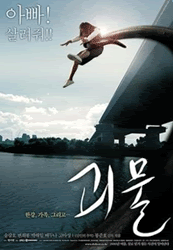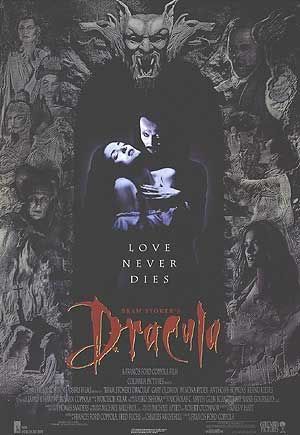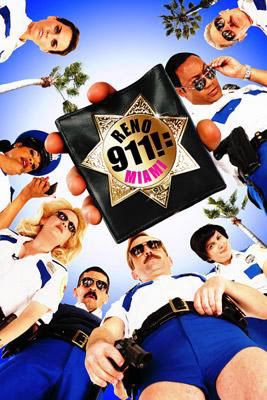
Where have all the monsters gone? In recent years horror film has enjoyed the same sort of resurgence it seems to experience every decade, but world events in the meantime seem to have altered its cultural purpose. Where the 1980s gave us the popcorn franchise frights like the
Friday The 13th films and the mid-nineties saw
Scream beget a string of deceptively tongue-in-cheek (though largely unfortunate) teen slasher flicks, the most current crop has little use for irony or escapism, instead relying largely on moral desolation and crass brutality, as if we pay eight dollars on a Friday night to confront our heightened anxieties rather than forget them. Sadly, this emphasis on monstrousness has also left little room for the sort of monsters that defined the genre, monsters who now find superior purchase in fantasy (
King Kong) and even the family film (
Wallace & Gromit: The Curse Of The Were-Rabbit.)
This decided shift in horror cinema’s fabric only strengthens the achievement of Bong Joon-ho’s playful, unpredictable
The Host, a Monster Movie in the most grand, classic sense. The highest-grossing film in the history of its native South Korea, The Host opens (after a short prelude) on a sunny Seoul afternoon as snack bar operator and single father Park Gang-du (Song Kang-ho) witnesses an enormous reptilian fish creature emerge from the Han River and rampage through a riverside park, taking his daughter Hyun-Seo with it as it finally resubmerges. As public panic ensues, exacerbated by the government’s revelation that the creature is host to a deadly virus, Gang-du and his family are forced to flee the quarantine in order to find Hyun-Seo.
That we see the monster in broad daylight for an extended sequence within the first few minutes of the film not only signals Bong’s rightful confidence in his distinctive, creative creature effects (handled impressively by the California-based Orphanage), but also a promise that the rest of
The Host is happy to deliver upon: the rules are made to be broken. The horror film (and by extension the monster movie) has historically been a breeding ground for cliché, but the Park family’s saga seems to openly refuse and defy the genre’s baser conventions, from the organic, internally logical plot to the warm, emotional tone of the character work. The suspense and scares, too, are genuine; where many films have slouched into the routine of “loud sound / cue bad guy”, Bong steadfastly refuses to cheat his audience. Most importantly, the film’s emphasis on familial love and loyalty unsurprisingly lends the inevitable deaths a consuming gravity, a trait sorely missing from
The Host’s hollow, crass horror contemporaries.
What makes the film most notable, though, is that it seems to single-handedly spit the monster movie squarely into the 21st century. These stories have always been reflections of deeper fears, from Shelley’s science-panicked
Frankenstein to the poignant post-nuke anxieties that inform Japanese creations like
Godzilla; here, too, Bong addresses his culture’s concerns, particularly as they relate to biological dangers. In the face of a horrific creature haunting the waters of the Han, the government seems more immediately concerned with the virus it apparently carries, and dedicates their resources toward a strict quarantine while Gang-du and his family are left to deal with the beast by themselves. This uncareful alarmism, coupled with the unmistakable iconography of the SARS and Avian Flu outbreaks, gives the film’s underlying unease a solid base in recent cultural psychology.
The Host is also amusingly contemporary in its portrayal of its few American characters. Our government and military play a key role as the story progresses, and Bong’s script (with Baek Chul-hyun) approaches our own cultural idiosyncrasies with a keen satirical eye that never steps out of line into demonization, just as he ribs his own South Korean government. The whole script, in fact, is filled with an endearing, witty goofiness, sharp yet warmhearted. Several reviews have made lofty comparisons to
Jaws and
Jurassic Park, and the similarity extends beyond their respective places in the monster movie canon; much of
The Host draws carefully but cheerfully on Spielbergian populism.
As
The Host rolls out its American release to reportedly enthusiastic audiences (the first showing at Nashville’s Belcourt sold out days in advance), it’s enticing to think about the return of the monster movie, or even a shift in horror’s stagnant course. But to hope for such things is to downplay
The Host’s tremendous uniqueness: funny, smart, original, beautiful, and scary, it’s an unusual creature in its own right.
(from the
KNOXVILLE VOICE)
 (or most of it, at least.)
(or most of it, at least.)










